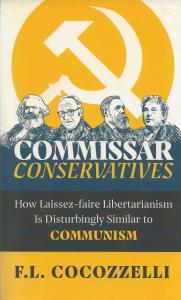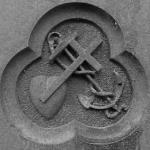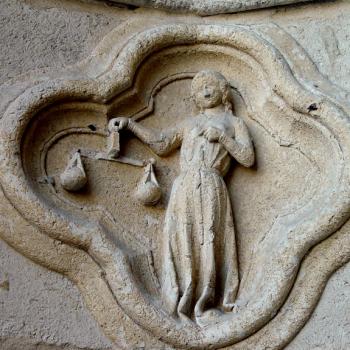
F.L. Cocozzelli pointed out the potential danger surrounding the pursuit of “pure doctrine.” It is easy to become complacent, to think one has attained it, so that, not only do they feel compelled to share it with others, they feel that they must make others conform to their doctrinal understanding. That is, those who are so focused on doctrinal assertions that they ignore a just, charitable praxis, often end up domineering, seeking to control others; they want to make others think just like them. If they do not get as they wish, these same people, as they have ignored love, end up becoming destructive, seeking seek to destroy anyone who is not like them. “The quest for ideological supremacy has a nasty habit of becoming one of annihilation instead of persuasion.”[1] We need to recognize this danger, and how it has caused all kinds of harm to Christianity.
Christians are meant to do more than pursue some series of propositions to believe. Christianity is meant to be a way of life. Those doctrines are to serve that way of life, to help explain it and why it is to be followed. And it is not to be just any way of life, but rather, following the example of Jesus, it is to be a life of love.
Those who think they know more, or can make even more, propositions than others, and that makes them great and holy, have not properly grasped the Christian faith. Their pride gets in the way. They want to be treated as wise sages, to be respected and revered for their apparent education and knowledge. We see, time and time again, when this does not happen, their pride them directs them to act with great hostility, if not hatred, towards those who do not show them the reverence they believe is their due. Many end up trying to squash all those who do not think like they do. What is clear is that such Christians assume way too much about themselves and their speculations. And yet, the way in which they quickly take up an ungodly rage shows how their pride, more than whatever they know, controls them, proving that they are far from the wisdom and understanding Christians they claim to possess. The way they strike out and destroy those who disagree with them show how they have abused Christian doctrine. They use and abuse the Christian faith, using Christianity as a tool to prop themselves up, hoping that they can eventually gain some control over others, being everyone around them to their will. As they often make themselves appear as major representatives of the Christian faith, they end up hurting those who are weak in faith, as those who are weak in faith begin to assume they truly represent Christianity instead of an aberration of it. St. Augustine went straight to the point when he asked, “What sort of insolence is it, then, to demand perfection of the weaker Catholics as an excuse for leading the unlearned away from the Church, and yet in no way to give evidence of such perfection in yourself to those whom you lead away?”[2]
We must, therefore, remember that praxis, action, is important; this means, we should consistently seek to refine ourself and our actions. We should do what we can to grow in love, for only if we love do we show that we properly understand and apply the point of doctrine in our lives. We are not to use the Christian faith merely as a tool to justify ourselves, all our selfish wants and desires, for if we did, all we would be doing is to try to make God involved with our evil deeds:
He Who knows all things says: See to it that you do not love God in a den of thieves [cf. Matt 21.13] by calling on Him amid your vanities and by invoking Him with words but not with deeds. I will respond to the person who speaks to Me with earnest words, but I keep Myself distant from those who speak to Me in rote phrases. [3]
As God is love, God does not entirely keep distant from anyone, for everyone is in the presence of God. However, the kind of awareness we can have of God will change based upon the way we act.
God should not be used as a tool to defend wickedness. And yes, sadly. genocide has been often committed in the name of God. Those who do so show that they do not truly reflect the love of God. They are not following the way God set up, but actually resist it, no matter what they try to claim. Thus, not just them, but so many of us will try to make God join in with our evil, and we do this by trying to justify ourselves and our actions by saying it is what God wants. Those in the know, those who truly have apprehended God and God’s love, know God does not and will not support such evil. While many who promote and do all kinds of evil in the name of God claim they represent God, in reality, they only represent themselves and project upon God their own will, making God a reflection of themselves. Indeed, they want God to be like this, which is why it can be said they are even trying to bend God to their will instead of bending theirs to God’s will. And in this way, the categories of ungodliness and wickedness, as defined by Origen, are interconnected, for both reflects ways in which we try to impose our will upon others and sin against them as a result:
“Ungodliness” refers to sin against God, “wickedness” to sin against men. Therefore he who by his wickedness suppresses the truth sins against God and against men. We are to believe that men have known this truth by means of the natural reasoning capacities which God has implanted into the soul. Enough wisdom has been granted to them that they should recognize which is known of God, that is, what can be perceived about God by way of inference from the creation; from the things which can be seen, his invisible things ought to be recognized. [4]
We will not become holy by trying to force others to conform to us and our will. We are to love others. Without love, even our doctrines, which can and do point to the truth, can end up leading us astray, for love is a necessary foundation, not just for our actions, but our doctrines. As God is love, if a doctrine does not reflect love in some way, it does not properly reflect God. Certainly, we must do more than act as if we embrace love, we must truly embrace it. Perhaps the best way to do that is to seek to fulll heal the harm we have done to others, to heal the wounds our sins have inflicted on them. For, if we only return a little of what we have taken, or heal a little of the harm which we have caused, when we can do much more, we show how far off we are from the truth and justice:
To give alms that which have been stolen from others is not a work of mercy but the fruit of sin; as Solomon says, “Like one who kills a son before his father’s eyes is the person who offers a sacrifice from the property of the poor” (Sir. 34:24). For the one who takes something unjustly never gives it away justly, nor does one give away well to another that which he has wickedly taken away from another.[5]
Sin seeks to perpetuate itself, to take what is good and slowly corrupt it. It does so by creating systematic structures that it uses to impose itself and its will, structures which, when accepted, can and does allow sin to hide itself from our view. Thus, if we do something which appears to be good, but then we are doing it for the sake of keeping things as they are, including and especially the injustices which are in place within the system we live in, we are not overcoming injustices, we are not seeking to heal the harm caused by sin, and so our actions should not be seen as purely good or just. Justice requires changing the system itself, healing it from the corruption of sin by removing whatever systematic structures of sin are found in it; a mere imitation of justice, as, for example, is found in and with legalism, only makes things worse because by its imitation of justice, it tries to divert us from real justice. The more we focus on pseudo-justice, the more difficult it will be for us to truly fix the system. And when the system is not fixed, whatever sins which remain, whatever systematic structures of sin which continue to abide, will be left to corrupt and destroy more and more, until at least, the system, like a tooth with an untreated cavity, will collapse in on itself and be destroyed, harming all kinds of innocents in the wake of that destruction.
[1] F.L. Cocozzelli. Commissar Conservatives. How Laissez-faire Libertarianism Is Disturbingly Similar To Communism (New York: Progressive Works Publishing, 2022), 8.
[2] St. Augustine, “The Way of Life of the Catholic Church” in The Catholic and Manichaen Ways of Life. Trans. Donald a. Gallagher and Idella J. Gallagher (Washington, DC: CUA Press, 1963), 61.
[3] St. Hildegard of Bingen, “Letter 343” in The Letters of Hildegard of Bingen. Volume III. Trans. Joseph L Baird and Radd K Ehrman (Oxford: Oxford University Press, 2004), 134.
[4] Origen, Commentary on the Epistle to the Romans: Books 1-5. Trans. Thomas P. Scheck (Washington, DC: CUA Press, 2001),90.
[5] St. Isidore of Seville, Sententiae. Trans. Thomas L. Knoebel (New York: Newman Press, 2018), 216.
Stay in touch! Like A Little Bit of Nothing on Facebook.
If you liked what you read, please consider sharing it with your friends and family!
N.B.: While I read comments to moderate them, I rarely respond to them. If I don’t respond to your comment directly, don’t assume I am unthankful for it. I appreciate it. But I want readers to feel free to ask questions, and hopefully, dialogue with each other. I have shared what I wanted to say, though some responses will get a brief reply by me, or, if I find it interesting and something I can engage fully, as the foundation for another post. I have had many posts inspired or improved upon thanks to my readers.













